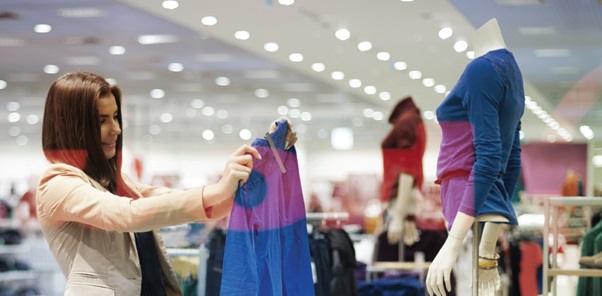Over half of UK consumers prioritise buying British, with heritage brands predicted ‘most likely’ to be in business in ten years’ time, in contrast to newly established brands, according to new research.
The Brand Confidence Report, conducted by Rakuten Marketing, ranks the brands that consumers believe are most likely to still be in business in 10 years’ time and the top 5 are all actually well over 100 years old:
1. John Lewis
2. Marks & Spencer
3. Boots
4. Harrods
5. Next
The findings show that following the vote for Brexit, ‘Brand Britain’ is powerful in driving consumer interest, but brands need to make it clear that they are ‘made in the UK’ in order to gain loyalty from this association. In addition, the research shows huge variation in loyalty to fashion brands between different age groups, with under 30s much more devoted to particular brands than older demographics.
Key findings:
• Consumers want to buy British but fail to identify UK-based brands
• Fashion brand loyalty is strongest among under 30s but decreases dramatically with age
• Heritage brands are predicted ‘most likely’ to be in business in ten years’ time but consumers show less confidence in younger brands
• 69% of under 30s say that they are loyal to a fashion brand but this drops to just 27% for those over the age of 60
• Alongside the products and price point, key factors in generating consumer loyalty include the brand’s trustworthiness (38%) and the reputation as an employer (11%)
Buying British
Over half of respondents said that they care about ‘buying from British brands’ and this increases to nearly 60% amongst the over 60s. However, when quizzed about which brands are home-grown many of them answer incorrectly, suggesting that they’re not as loyal to UK companies as they say they are.
Only a tenth of the survey respondents correctly identified popular high street brands including SuperDry (11%), Hotel Chocolat (9%) and Caffé Nero (6%) as British. Staggeringly, nearly a third of Brits polled consider British Airways to be a foreign owned business, perhaps indicating a growing belief that successful British businesses have been bought out.
Fashion brand loyalty decreases with age
69% of the ‘millennial’ market (16-29 year olds) say that they are loyal to a fashion brand but this drops to just 27% for those over the age of 60. Surprisingly though, only 22% of people say that it’s most important for them to shop from fashion brands that echo the kind of person they want to be perceived as.
61% say the products the brand offers are most important, compared to 49% who say they choose a brand because the price point is correct for them. Other key factors include the brand’s trustworthiness (38%) and the reputation of the brand as an employer (11%).
Over a quarter of shoppers (28%) say that they purchase from a fashion brand they are loyal to once a month and 26% purchase from a fashion brand every three months, suggesting that brands can still earn loyalty over longer time frames. In fact, 33% of ‘Grey Pound’ (over 60s shoppers) buy from the brand they’re most loyal to once a year or less.
Nick Fletcher, head of multichannel at Rakuten Marketing comments: “When it comes to leaving a brand, over a quarter of under 30s (27%) turn away for reasons that don’t have anything to do with the products or price point they offer. Brands must add value to the customer experience they provide in order to compete. Nearly a fifth (17%) of 16-29 year olds place importance on brand experience, proving the importance of tailored marketing campaigns. It’s easier than ever for brands to segment their communications to make them relevant to the individual now due to advanced data technologies and brands have to take advantage of this to win loyalty.”
The value of loyalty
23% of shoppers say that loyalty points redeemable against future purchase incentivise them to spend more online, showing the value of keeping a customer once they have invested in a brand. For 44% of consumers the awareness of voucher codes, such as a 10% discount, can prompt them to purchase more and a free delivery offer encourages half of shoppers to purchase highlighting the power of incentives.
Legacy brands top confidence list
The research also identifies the brands that consumers believe are most likely to still be in business in 10 years’ time and the top 5 are all actually well over 100 years old:
6. John Lewis
7. Marks & Spencer
8. Boots
9. Harrods
10. Next
Marks & Spencer is considered by two-thirds (66%) of respondents to have successfully changed its offering at least somewhat to adapt with the times, highlighting that if legacy brands can move with the times they can win loyalty and trust for the long term.
Fletcher continues: “The brands that people expect to be in business in 2026 are the heritage players on our high street at the moment. Although there is a new era of companies driving their businesses through apps, for example, it’s still legacy brands that win out in the minds of consumers as having staying power. Brits cannot imagine the retail environment without these brands.”
To read the full Rakuten Marketing Brand Confidence Report please click here
Methodology
Rakuten Marketing conducted research with Morar Research among 2,000 consumers across the UK about their loyalty to both legacy and emerging brands in fashion, luxury, department stores and lifestyle. The study noted the ages of all respondents and included several open-ended questions to investigate the most popular brands today and perceptions of how some of the most recognisable retailers have changed and evolved in recent years.
